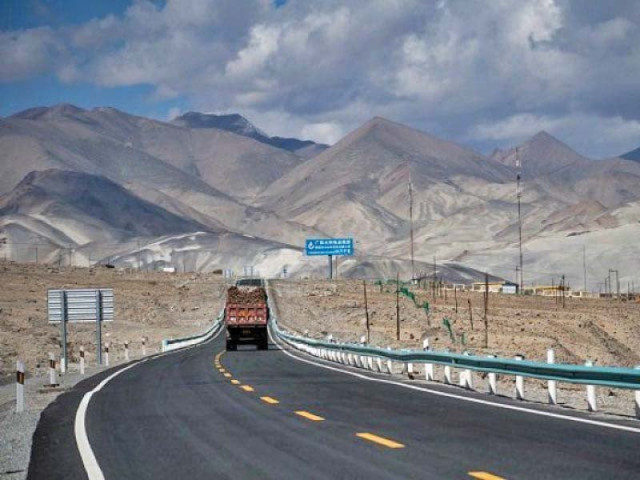Phase 2 of CPEC accelerated with new economic corridors
Collaborative efforts aim to fast-track development initiatives, enhance regional connectivity

Pakistan and China intensified efforts on Friday to establish a Working Group on five new economic corridors under the second phase of the China-Pakistan Economic Corridor (CPEC), aligning with the 5Es framework prepared by the Planning Ministry.
During a meeting between the Federal Minister of Planning, Development & Special Initiatives, Ahsan Iqbal, and the Chinese envoy, Jiang Zaidong, both sides agreed to expedite the second phase of CPEC and establish a working group on five new economic corridors, including the Corridor of Job Creation, Corridor of Innovation, Corridor of Green Energy, and Inclusive Regional Development.
Both the Planning Ministry and the National Development and Reform Commission (NDRC) of China will prepare separate concept papers on the new economic corridors, providing a clear roadmap for each sector in the future. These concept papers will be consolidated for presentation at the upcoming Joint Coordination Committee (JCC) meeting expected in 2024, stated the Planning Ministry.
The Planning Ministry has already initiated the implementation of the 5Es framework, which includes Export, Energy, Equity, E-Pakistan, and Environment. This framework will align with the five new economic corridors to advance Pakistan’s prosperity in each sector under the vision of Prime Minister Shehbaz Sharif, emphasised the minister, highlighting the importance of accelerating Pakistan’s export capabilities through enterprise development and job creation.
Read Pakistan, China to form WG on 5 new economic corridors under CPEC
During the meeting, the planning minister outlined a strategic approach to maximise the success of Special Economic Zones (SEZs) within Pakistan. He proposed a “one plus four” model, wherein each SEZ in Pakistan would be partnered with one province from China, one industry group to develop specialised clusters within the SEZs, one SEZ from China to provide technical expertise, and a state-owned enterprise to spearhead SEZ development. Iqbal highlighted that this collaborative framework would expedite the establishment and growth of SEZs in Pakistan, enhancing their competitiveness and attractiveness to investors.
The Chinese envoy appreciated Pakistan’s efforts to implement the CPEC, particularly the initiation of phase 2. Addressing Pakistan’s need to boost the efficiency of SEZs to increase foreign exchange, the Chinese envoy suggested that officers in charge of SEZs must visit Chinese industrial parks to observe firsthand the efficiency measures practiced by Chinese authorities. The ambassador further highlighted Pakistan’s commendable transition from an agricultural to an industrial economy.
Iqbal stressed that the success of SEZs depends on their ability to become clusters of specific industries, fostering economies of scale, and creating a vibrant ecosystem conducive to innovation and growth.
The discussions also focused on enhancing regional connectivity, with a special emphasis on critical infrastructure projects like the Gwadar Port and the M-8 motorway, which will strengthen trade links and facilitate regional integration.
Published in The Express Tribune, March 23rd, 2024.
Like Business on Facebook, follow @TribuneBiz on Twitter to stay informed and join in the conversation.



















COMMENTS
Comments are moderated and generally will be posted if they are on-topic and not abusive.
For more information, please see our Comments FAQ